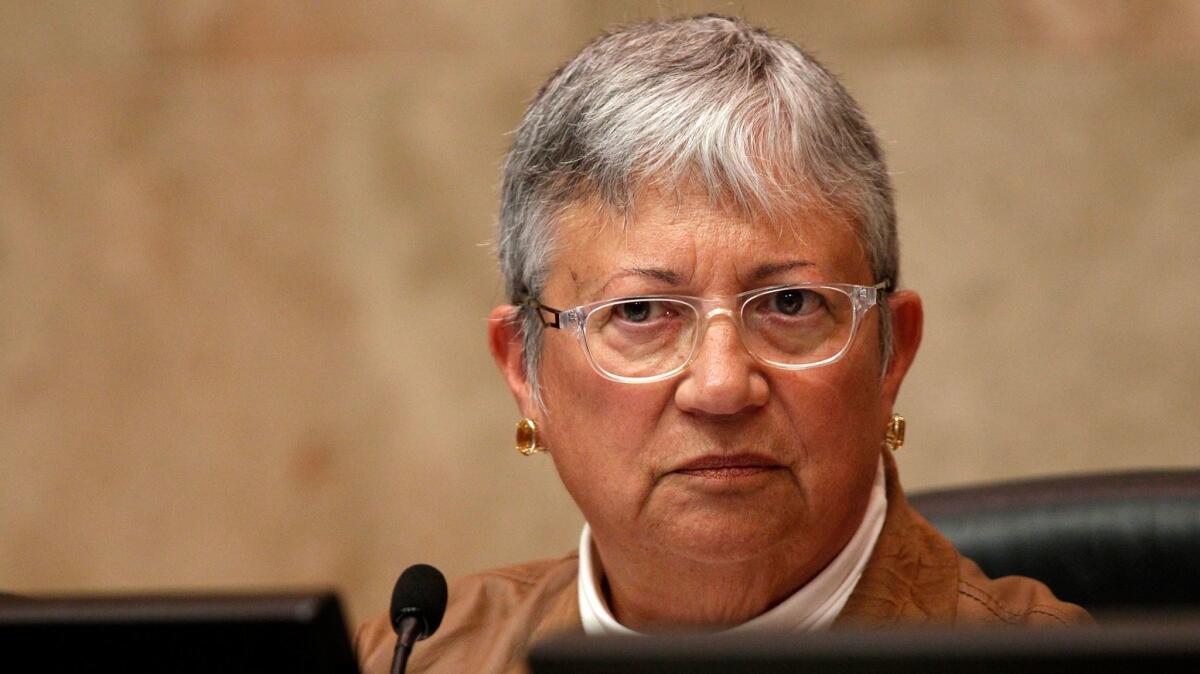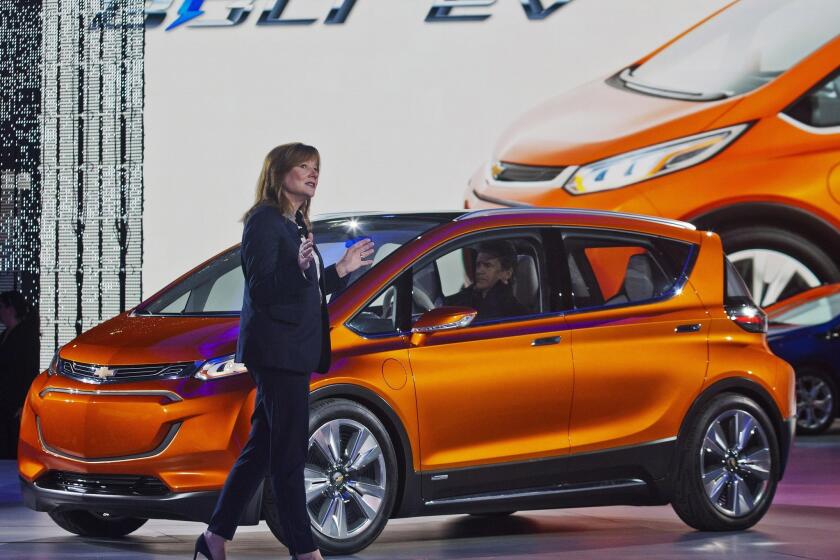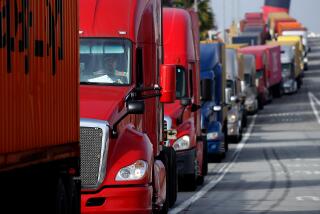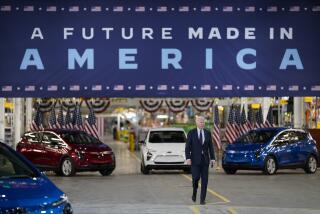State will prevail in Trump emissions fight, California Air Resources Board chief says

Even if the White House declares null and void California’s ability to regulate greenhouse-gas emissions from motor vehicles — a move expected within weeks — the state will continue to fight in court and and keep its clean-air rules in place, unless a court orders otherwise.
That’s according to Mary Nichols, chairwoman of the California Air Resources Board, who remains confident of victory. “We’re going to win,” she said on stage at the Bloomberg New Energy Finance conference in San Francisco on Tuesday.
A flurry of lawsuits last year followed the Trump administration’s plan to pull back from emissions targets for 2022-25 that had been negotiated between the auto industry and the Obama administration.
Electric vehicles can cut greenhouse gases and carmakers have big plans for them. But so far, few car buyers want them.
The bitter battle between the federal government and California has split the auto industry. After the White House made clear last year it would deep-six the Obama plan, Ford, Volkswagen, Honda and BMW reached an agreement with Nichols’ group to extend the deadline by a year while sticking close to the original greenhouse-gas requirements. That upset Trump, who said he thought he was doing the auto industry a favor. “Foolish executives!” he tweeted.
Soon after, 15 companies, including General Motors and Toyota, sided with the White House.
Nichols said she’s hoping some of those companies will return to the California camp and the lawsuits continue on, for the sake of a predictable nationwide standard.
She acknowledged, however, that having the auto industry split in two made her “mad.” She skipped November’s L.A. Auto Show, she said, because “I didn’t want to hang out and have jolly conversations with the companies that were suing us.”
Since 2013 California has operated under a federal waiver that permits it to regulate greenhouse-gas emissions. Thirteen other states follow California’s lead on tougher standards. Together those 14 states account for more than 40% of the U.S. automobile market.
The strife could affect electric-vehicle growth in the United States, which declined last year — as did overall vehicle sales — by more than 6%, to 325,000 vehicles. That’s only about 2% of the total passenger vehicle market. The vast majority of EVs sold are Tesla Model 3s.
Trump wants to dump Obama-era emissions regulations. Auto industry seeks regulatory certainty to guide future investment.
In China and Europe, where regulations are stricter, EVs account for about 5% of the total passenger-vehicle market, according to BNEF.
The Trump administration argues that the California rules make cars too expensive and claims that the rules force cars to be smaller, making them less safe. Proponents of the California rules say gas savings would make up for more expensive electric technology, and dispute the argument about safety.
At the same San Francisco conference a year ago, Nichols had forecast “a war” between the Trump administration and California “with many states lining up on California’s side.”
A lawsuit was filed by California, 23 other states and the cities of Los Angeles, San Jose and San Francisco against the National Highway Traffic and Safety Administration, which regulates mileage standards. The same group filed a petition pushing the EPA to justify its greenhouse-gas rollback in October.








